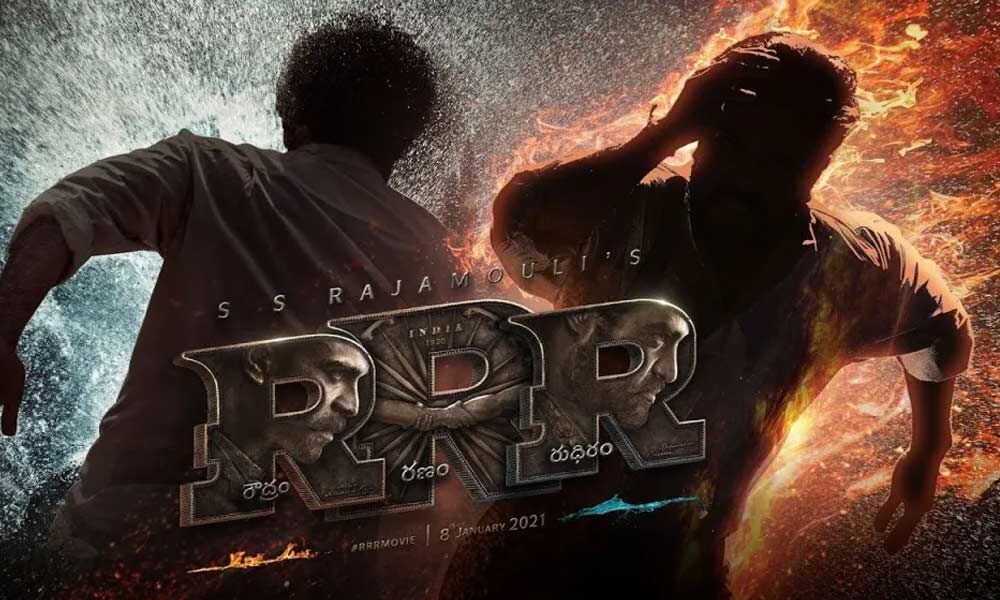
After the pandemic, 2 years of living in one of the most locked down cities in the world and increased pressure of work, it was going to take something special to get me back to the cinema. So, a film by Rajamouli seemed like the perfect way to get back to the big screen, especially with both NTR Jr and Ram Charan starring in a plot focused on rebellion against the British. RRR is a swashbuckling adventure with plenty of action and daring do that explodes onto the screen from the very first frame. Both heroes get exciting introductions before finally meeting in another explosive (literally!) scene that mixes their two elements of fire and water in equal measure. After such a long hiatus, this was definitely worth venturing out to the cinema to watch on a cold autumn evening in Melbourne.
The film is essentially a bromance between Raju (Ram Charan) and Bheem (NTR Jr) as the two mow their way through various opposing forces until they end up facing each other on opposite sides. There are romantic interests for both, but they are mostly one dimensional and appear only to move the plot forwards to the next major point. What is important here are the two heroes and the whole masala spectacle surrounding them as Rajamouli tells the story in his inimitable style. It’s interesting that the characters are based on Alluri Sitarama Raju and Komaram Bheem, both real revolutionary leaders at the same time in India, although they never actually met in real life. K.V. Vijayendra Prasad’s story takes some real life aspects as the basis for each character however the tale itself is pure fiction.


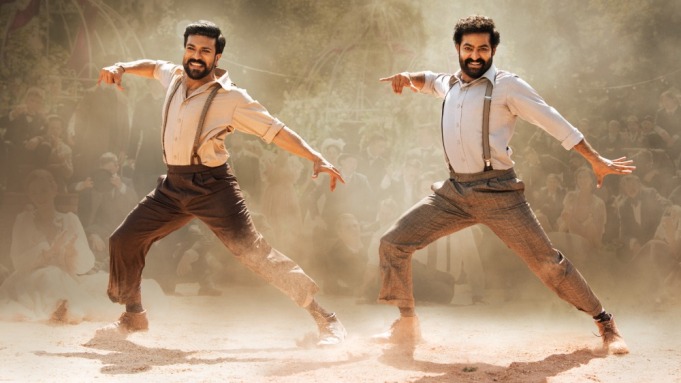
The story is set in 1920 and starts with Governor Scott Buxton (Ray Stevenson) and his wife Catherine (Alison Doody) visiting a Gond tribe and forcefully taking a young girl, Malli (Twinkle Sharma) back to Delhi with them. But even in this opening scene, Rajamouli adds more to immediately fills in some background and set the tone of the characters. The Governor’s Chief of Staff Edward (Edward Sonnenblick) contemptuously throws a few coins in the dirt as Malli is dragged away and when her mother throws herself at the Buxton’s car to save her daughter, Buxton tells his soldiers not to waste expensive British bullets on brown trash. So right from the start we know the Buxton’s are evil, Edward is a nasty character and we assume that they will all get their comeuppance before the end of the film.


Raju is a police officer in Delhi but is introduced defending a police station from a hoard of protestors somewhere outside the city. When his superior officer calls out for a man who threw a stone to be arrested, Raju throws himself into the howling mob to find the culprit. Much machismo action later, he drags the offender back to the police station but is later disappointed not to be promoted as a result. Much of Raju’s behaviour is explained later but from the start he appears cold, ruthless and driven to reach the top in his chosen profession. The only warmth we see comes from his friendship with Bheem, at least until his backstory is revealed. The enduring image of Raju from the first part of the film is his stoic demeanour while on duty followed by relentless pummelling of a boxing bag in the privacy of his quarters.
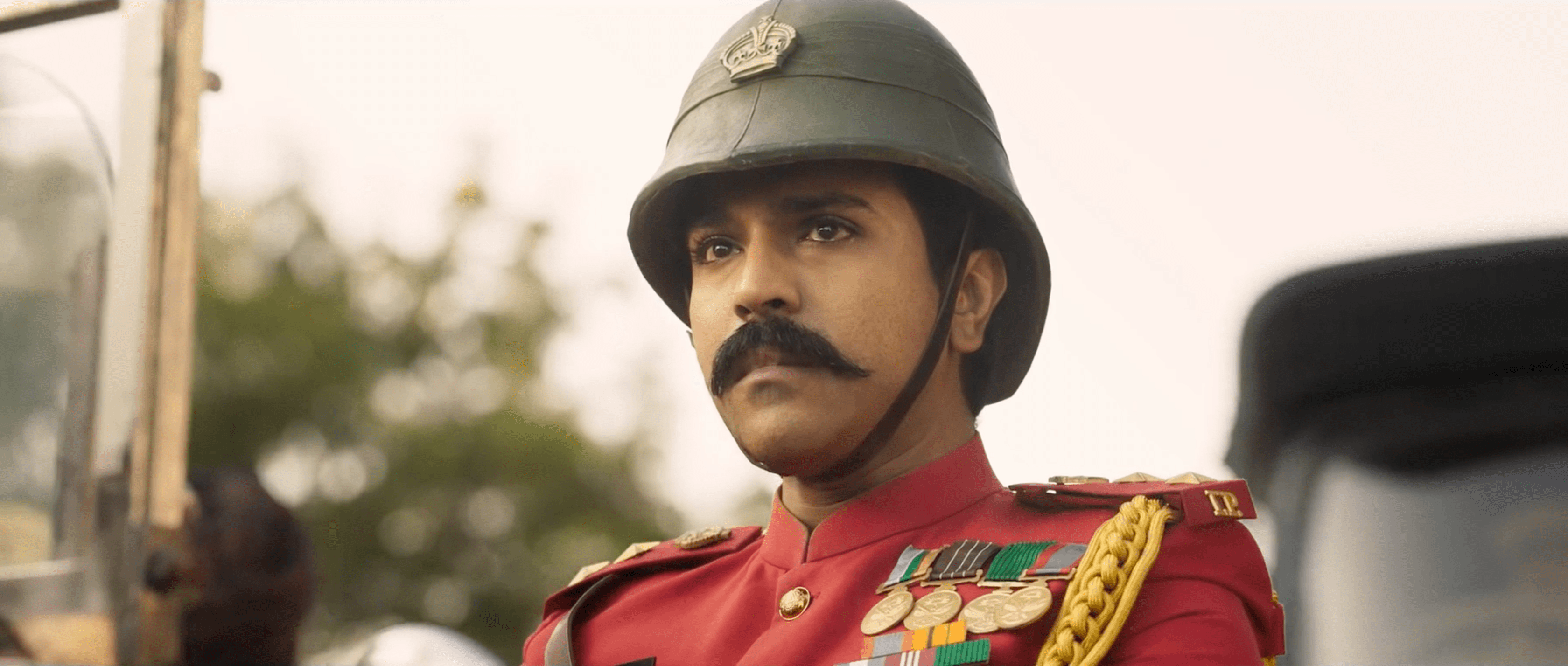
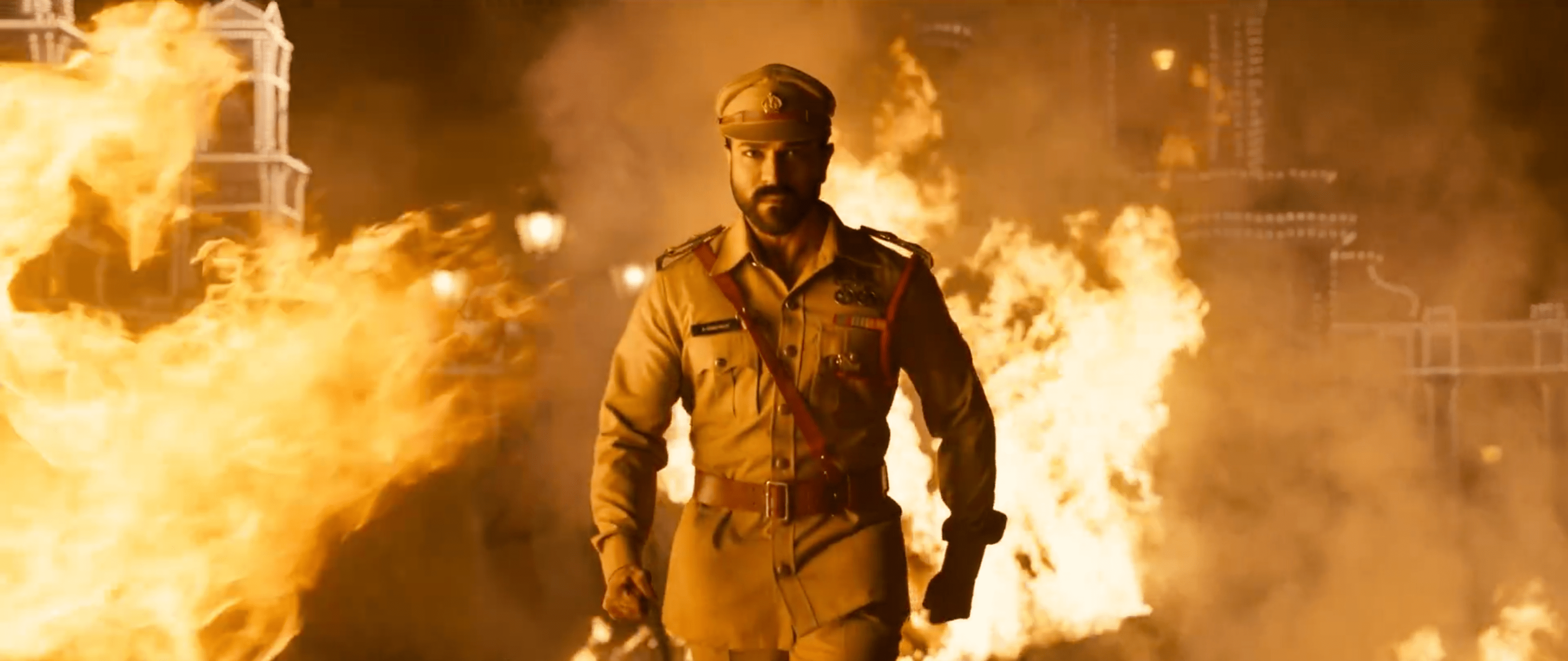
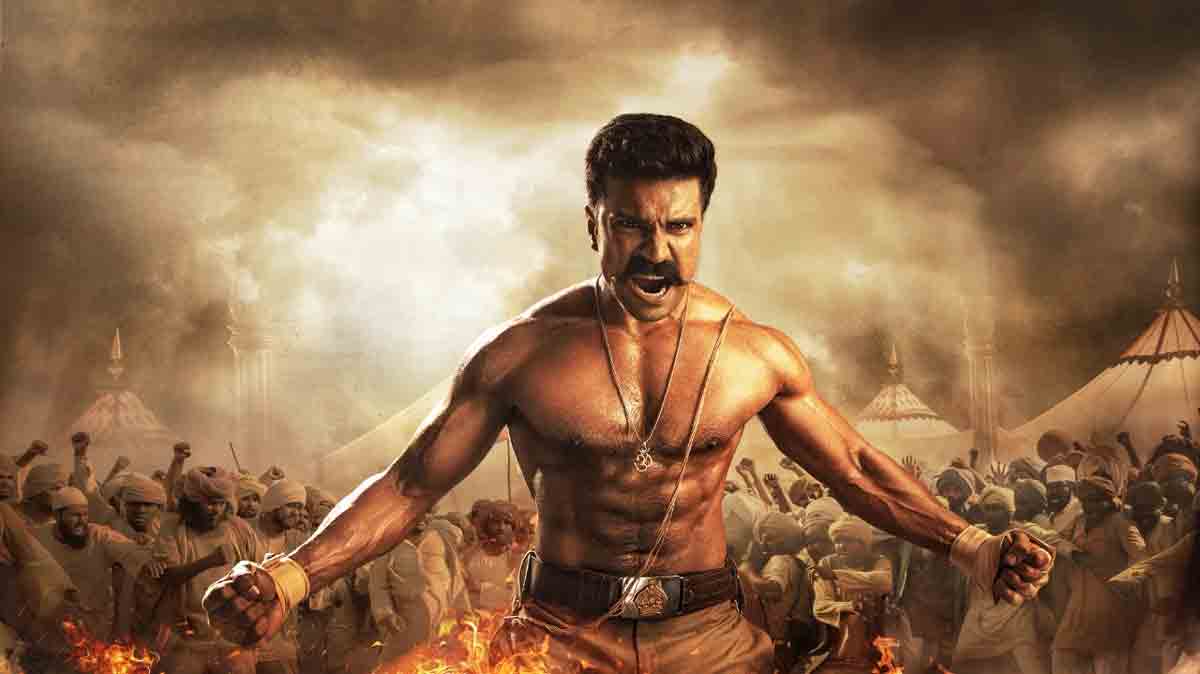
Bheem is the Gond tribe protector and we meet him during a hunt where he inadvertently ends up taking on a tiger. When the trap fails and the tiger roars at Beem, he immediately roars back before demonstrating that he truly is the king of the jungle. With a few trusted men, Bheem heads to Delhi to find Malli and bring her back to the tribe. He poses as a Muslim working as a mechanic while he searches for a way to get into the Governor’s palace with Lacchu (Rahul Ramakrishna) and Peddanna (Makarand Deshpande). During his time in the city, Bheem meets Raju when the two work together to rescue a small boy caught on the river after a train bursts into flame on the bridge above and falls into the water. The two have instant rapport, communicating at a distance via a series of signals and finally clasping hands under the bridge in a symbolic moment that foreshadows later events. It’s over the top, wonderfully cinematic and simply splendid as the two Telugu heroes meet amidst the roar of flames and again under water.
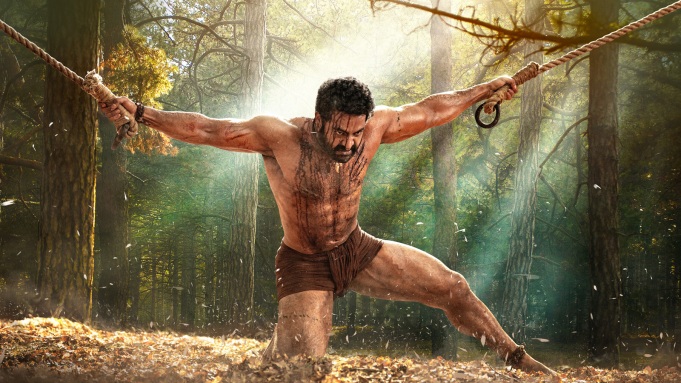
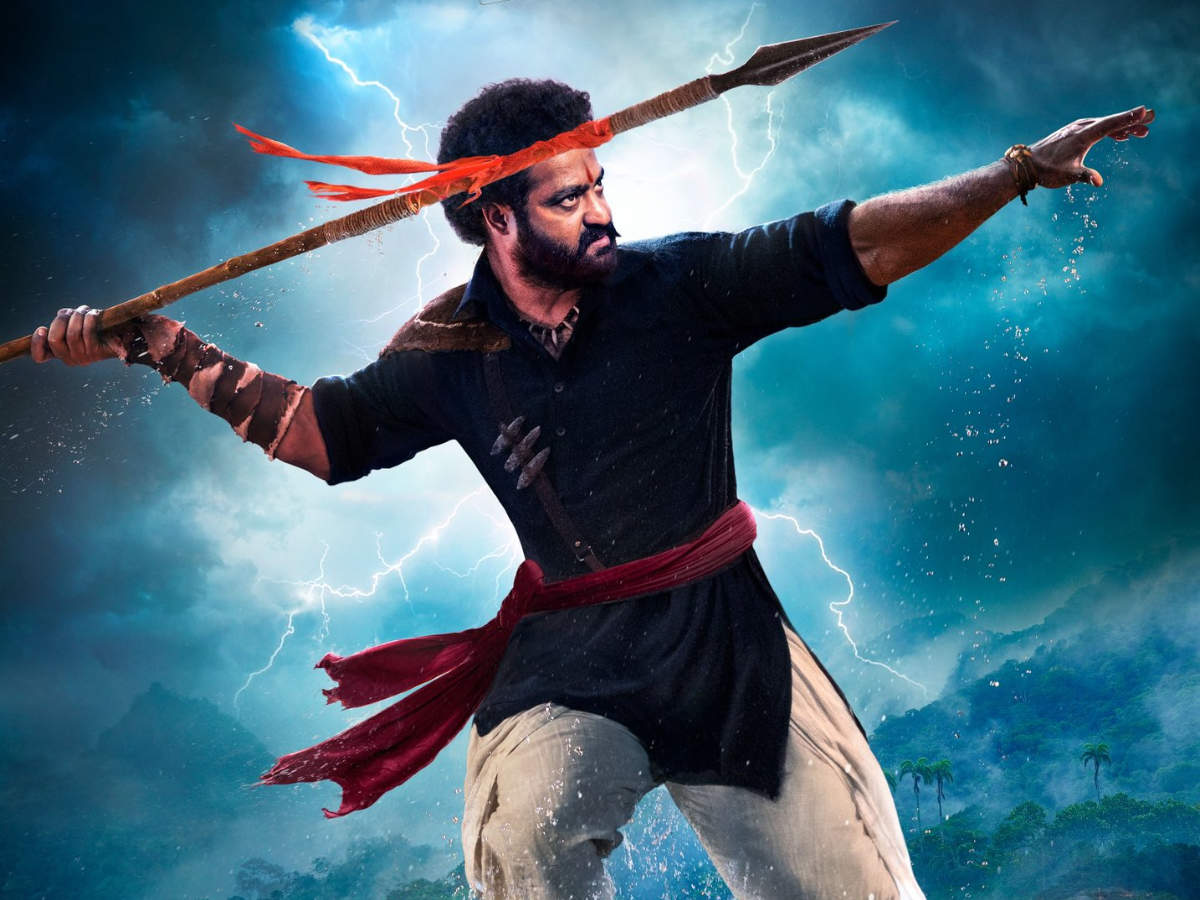

Tarak and Ram Charan have amazing chemistry together and the energy they share makes it easy to get engrossed in their story, without caring about how excessively extravagant and spectacular the entire plot actually is. Their action sequences are incredible, totally over the top with cartoonish violence, but it all works beautifully in the environment that Rajamouli has created. Tarak’s stockier frame is perfectly suited to his role as the Gond protector, but even with all the crazy action scenes, there are moments where a softer side is allowed to break through. What I love is the effort taken to show Bheem’s respect for the forest and wild-life, and I also really appreciate the emotion Tarak adds to the song Komuram Bheemudo. Ram Charan’s back story is also a tearjerker, and while Ajay Devgan makes an appearance as Raju’s father, the actor who stands out for me is Shriya Saran as Raju’s mother Sarojini. She only has a few brief moments onscreen but makes a mark with her performance, despite her limited role. The actor playing young Raju (Varun Buddhadev) is also excellent in this sequence and for a change, Ajay Devgan is not as annoying as usual even with his repeated ‘load, aim, shoot’ dialogue. Perhaps the biggest disappointment is Alia Bhatt as Raju’s fiancée Sita. She has very little to do and quickly fades into the background as soon as her lines are delivered. I don’t feel that either of the two love interests were necessary for the story but of the two, Olivia Morris as Jennifer is the more memorable.

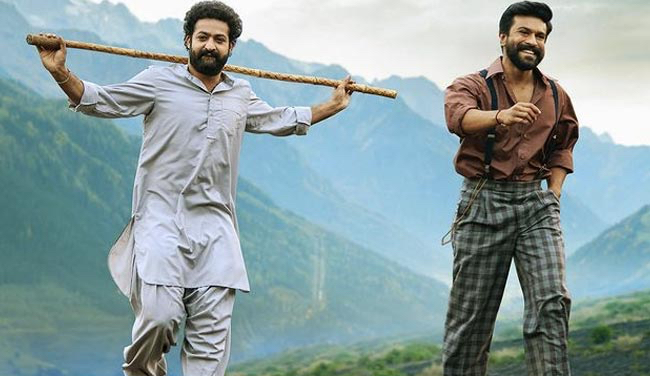
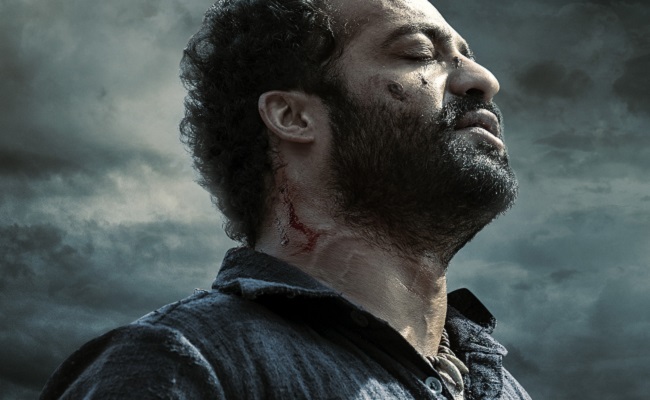

Everything in the film is completely over the top, the action, the dances sequences and even Bheem and Raju’s friendship. When Raju transforms into Ram, complete with bow and arrow, and Bhhem picks up a motorcycle to use as a weapon, it doesn’t seem overblown at all after the excesses of the previous action scenes. Naturally the British are all horrible, with the exception of Jennifer although she has little to do once she provides the way for Bheem to access the palace. Buxton and his wife are caricatures of villains, both completely vile, with Catherine revelling in the blood and gore during torture sequences and Buxton showing disdain for anyone and anything not British at every possible opportunity. I totally love how absolutely horrible they all are and it really seems as if the actors enjoyed their roles thoroughly. Ray Stevenson, Alison Doody and Edward Sonnenblick are all good and make their exaggerated roles fit into the screenplay much better than expected although I would have liked to see Edward have more of an action role in the final sequences with all the explosions and carnage.
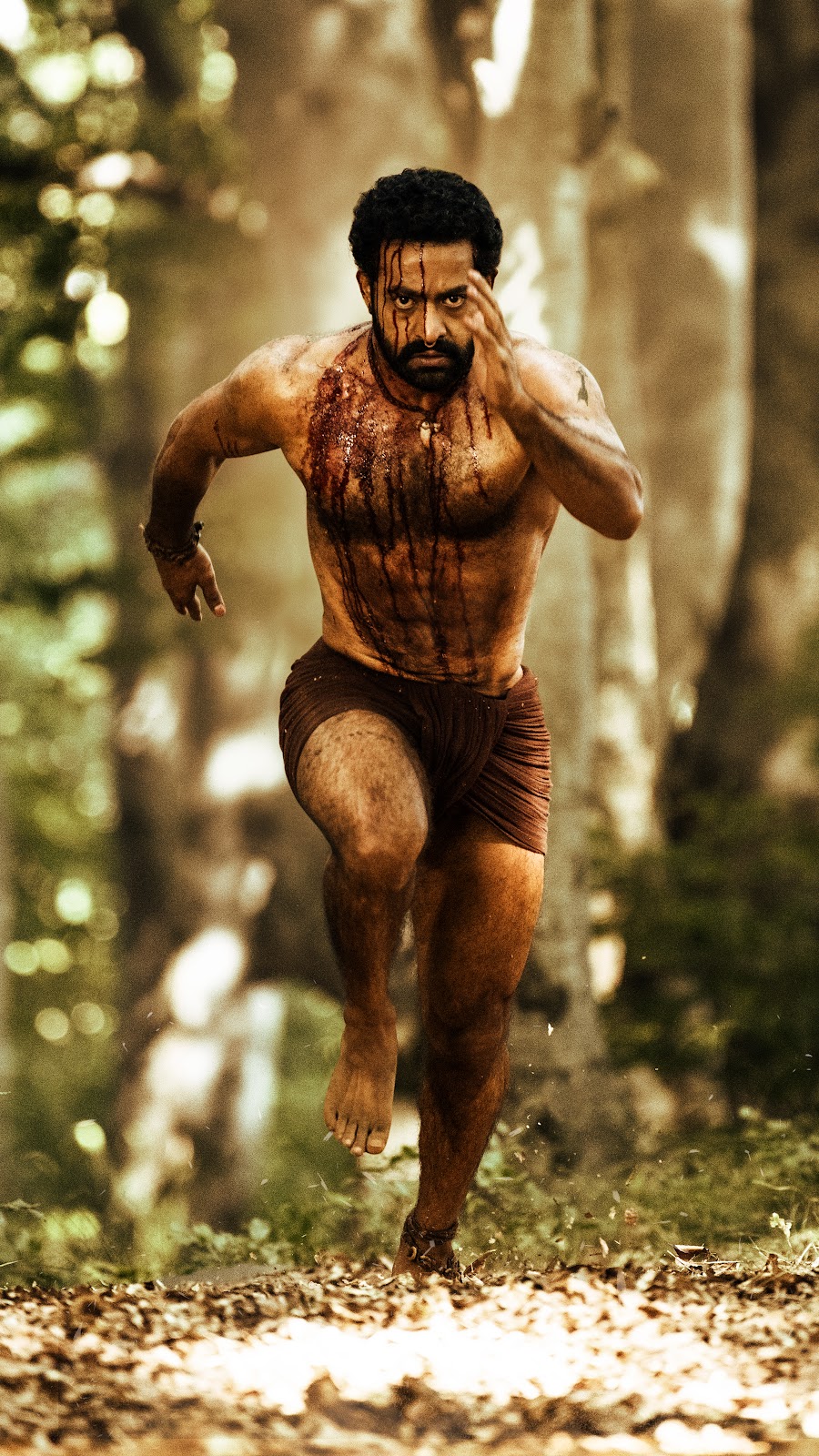
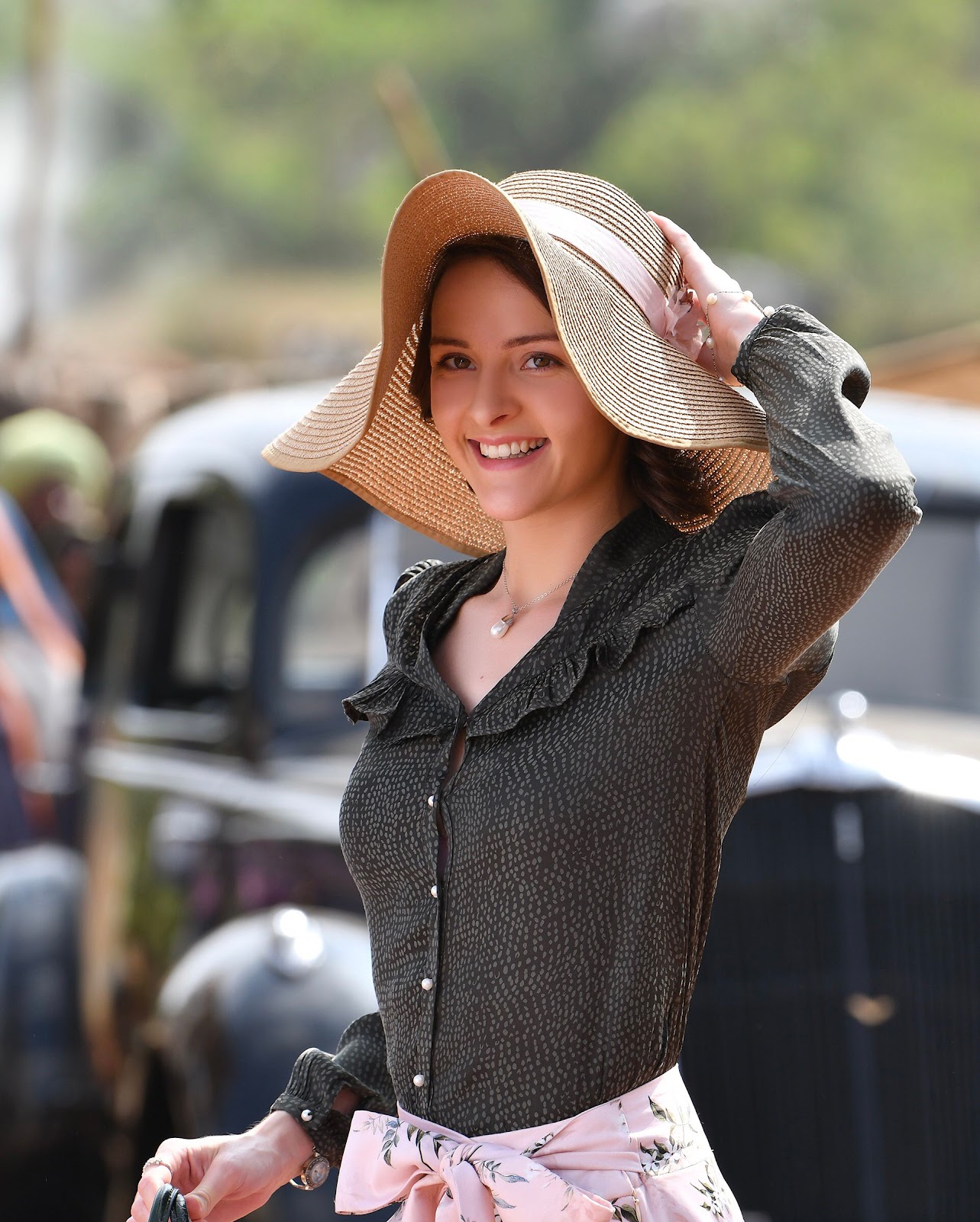

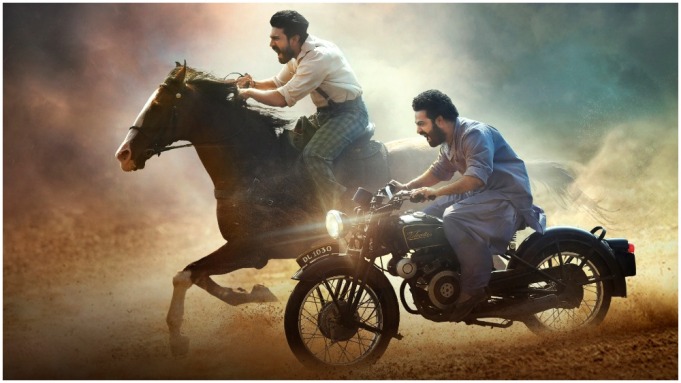
RRR is riotous, extravagant and totally mind-blowing. The action sequences are fabulously staged and spectacular while the two main leads are outstanding. There are just not enough superlatives to describe just how totally over the top this film is, and all I can say is do not miss this experience at the cinema! RRR is masala entertainment as it should be. After the last few difficult years this really was a triumphant return to a theatrical experience, and I loved every minute. 5 stars!











































